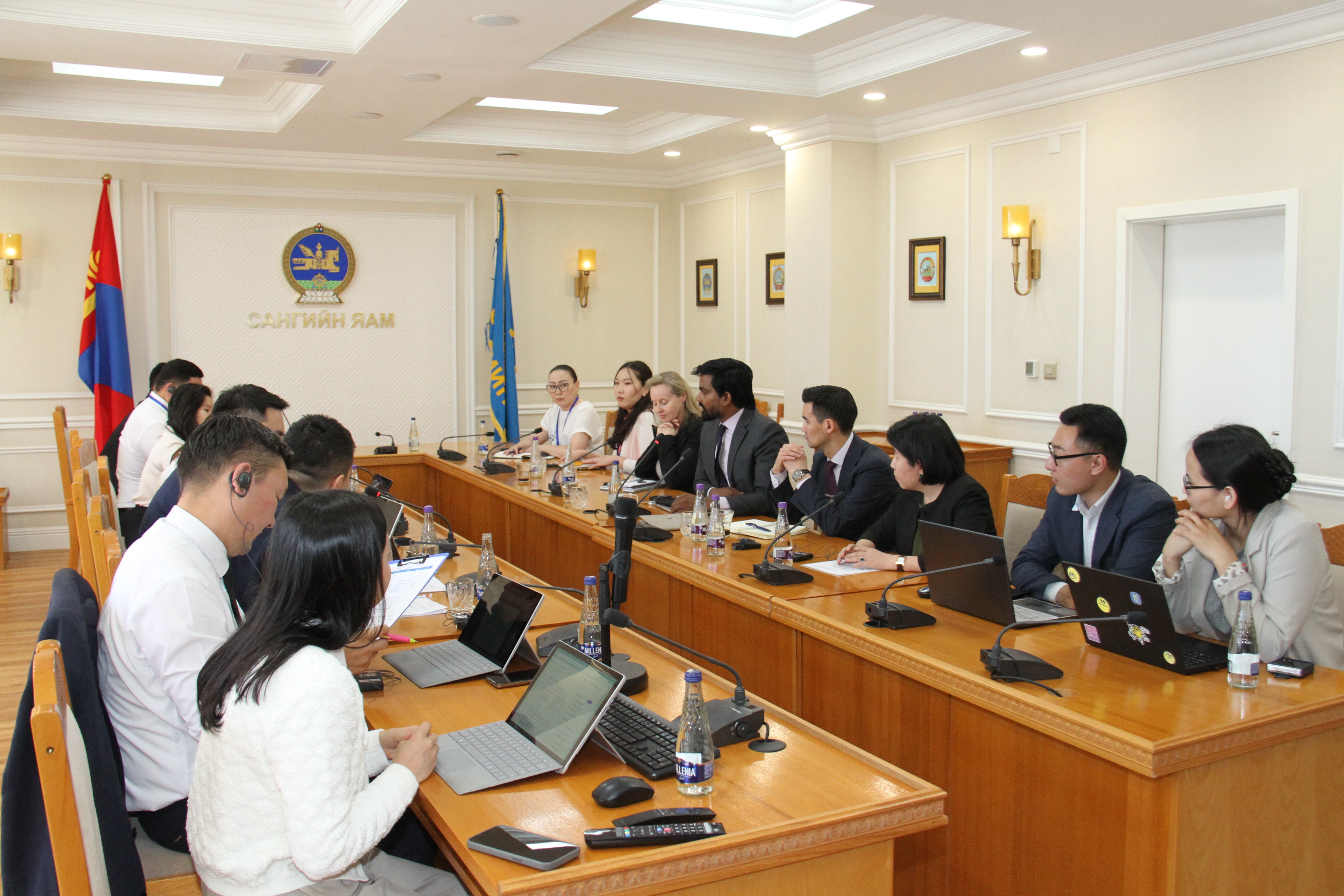This tool is designed to align tax policies with the Sustainable Development Goals (SDGs), thereby contributing to sustainable development and domestic resource mobilisation.
UNDP introduced the Sustainable Taxation Framework tool, a comprehensive solution that can significantly enhance Mongolia's tax system efficiency
June 12, 2024

Ulaanbaatar, Mongolia - From June 4 to 7, 2024, UNDP Mongolia, the Ministry of Finance, and the Mongolian Tax Administration, in a united and collaborative effort, welcomed members of the SDG Taxation Framework mission.
The mission's purpose was first to promote a shared understanding of tax and SDGs issues among tax administrators, policymakers, and other stakeholders at the national level through capacity-building workshops, and the second objective was to support the carrying out of self-evaluation using the Sustainable Taxation Framework (STF). This self-evaluation process allows countries to assess the coherence of their tax systems concerning specific SDG targets, thereby identifying areas for improvement and strategic realignment of tax policies.
UNDP has developed an SDG Taxation Framework, a comprehensive diagnostic tool with immense potential to recognise the significance of domestic Resource mobilisation (DRM) in attaining the SDGs and the significant role taxation plays in DRM, offering a promising path towards sustainable development.
The framework provides a roadmap for countries to enhance their tax systems, ensuring they are efficient and contribute to sustainable development. In the case of Mongolia, the tool was used to assess the coherence of tax systems with the targets of four SDGs: SDG 7: Affordable and Clean Energy, SDG 13: Climate Change, SDG 16: Peace, Justice, and Strong Institutions, and SDG 17: Domestic Revenue.
The mission was led by Sudarshan Kasturirangan - Regional Programme Specialist for Asia Pacific for SDG Taxation and composed of specialists such as Amna Khalifa (virtual) - Technical and Outreach Specialist SDG Taxation Framework, Melanie Robert - Technical Specialist Anti-Corruption, Hafiz Choudhury (virtual) - Technical Expert Extractives Energy and Islamic Taxation, and Tatiana Falcao – International consultant on Designing the carbon taxation framework.

Ms. Matilda Dimovska, UNDP Mongolia Resident Representative, highlighted the importance of tax and fiscal policies, which can boost resource mobilisation, diminish inequality, and urgently address climate change while promoting sustainable consumption and production practices. "By harnessing taxation, we can advance the Sustainable Development Goals (SDGs) and foster inclusive and sustainable development in various other aspects," she said during the meeting with development partners.
Relevant government representatives from key partners, including Ministries of Finance, Economy and Development, Environment and Tourism, Energy, Mining and Heavy Industry, as well as Mongolian Tax Authority, Independent Authority Against Corruption, Bank of Mongolia, Energy Regulatory Commission and National Police Agency discussed how to support tax policy and administration reforms with a focus on strengthening domestic resource mobilisation (DRM) and helping reach environmental goals, and in general support Mongolia's sustainable development.
***
About UNDP
UNDP is the leading United Nations organization fighting to end the injustice of poverty, inequality, and climate change. Working with our broad network of experts and partners in 170 countries, we help nations to build integrated, lasting solutions for people and planet.
For further inquiries:
Jargalsaikhan Purevdorj | Communications Analyst | UNDP in Mongolia | jargalsaikhan.purevdorj@undp.org

 Locations
Locations


